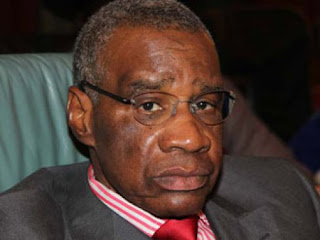 |
| Abdulmutallab |
By Paul Arhewe
Penultimate Thursday, US Federal Judge Nancy Edmunds convicted the Nigerian underwear bomber, Umar Farouk Abdulmutallab and sentenced him to multiple life jail. Rationalising the sentence, the judge had said: “This was an act of terrorism that cannot be quibbled with.” The 25 year-old Nigerian, from an affluent and well cultured family, was indoctrinated after persistent listening and watching of internet videos containing radical teachings from the late Arabian Peninsula based Al-Qaeda Islamist cleric, Anwar al Awlaki.
Penultimate Thursday, US Federal Judge Nancy Edmunds convicted the Nigerian underwear bomber, Umar Farouk Abdulmutallab and sentenced him to multiple life jail. Rationalising the sentence, the judge had said: “This was an act of terrorism that cannot be quibbled with.” The 25 year-old Nigerian, from an affluent and well cultured family, was indoctrinated after persistent listening and watching of internet videos containing radical teachings from the late Arabian Peninsula based Al-Qaeda Islamist cleric, Anwar al Awlaki.
Umar Farouk, like some youths from wealthy homes residing outside the shores of the country, had lived an affluent lifestyle. He had money and the means to move from country to country; he also had ample liberty to choose the type of lifestyle to pursue. After being indoctrinated in Yemen and having found a new faith, the former engineering student at University College London and youngest out of 16 children of Alhaji Umaru Mutallab, a former banker sent text messages to his parent urging them to “... just forget about me, I’m never coming back… Please forgive me. I will no longer be in touch with you… Forgive me for any wrongdoing, I am no longer your child.”

